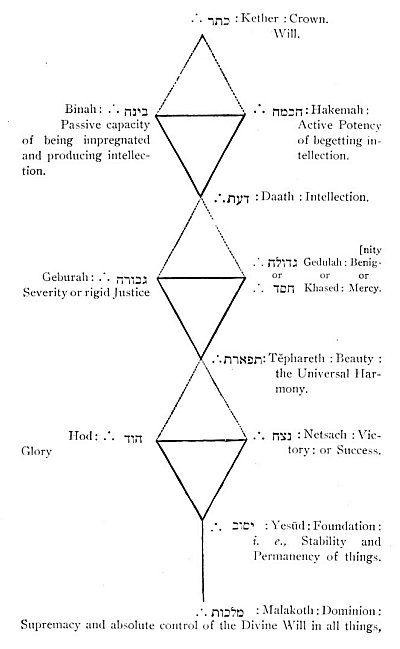Controlled by reason infinitely more than by the imagination, that people, occupying the extreme East of Asia, did not fall into idolatry until after the time of Confucius, and within two centuries of the birth of Christ; when the religion of BUDDHA or Fo was carried thither from India. Their system was long regulated by the pure worship of God, and the foundation of their moral and political existence laid in a sound, upright reason, conformable to true ideas of the Deity. They had no false gods or images, and their third Emperor Hoam-ti erected a Temple, the first probably ever erected, to the Great Architect of the Universe. And though they offered sacrifices to divers tutelary angels, yet they honored
p. 616
them infinitely less than XAM-TI or CHANG-TI, the Sovereign Lord of the World.
Confucius forbade making images or representations of the Deity. He attached no idea of personality to Him; but considered Him as a Power or Principle, pervading all Nature. And the Chinese designated the Divinity by the name of THE, DIVINE REASON.
The Japanese believe in a Supreme Invisible Being, not to be represented by images or worshipped in Temples. They styled him AMIDA or OMITH; and say that he is without beginning or end; that he came on earth, where he remained a thousand years, and became the Redeemer of our fallen race: that he is to judge all men; and the good are to live forever, while the bad are to be condemned to Hell.
“The Chang-ti is represented,” said Confucius, “under the general emblem of the visible firmament, as well as under the particular symbols of the Sun, the Moon, and the Earth, because by their means we enjoy the gifts of the Chang-ti. The Sun is the source of life and light: the Moon illuminates the world by night. By observing the course of these luminaries, mankind are enabled to distinguish times and seasons. The Ancients, with the view of connecting the act with its object, when they established the practice of sacrificing to the Chang-ti, fixed the day of the Winter Solstice, because the Sun, after having passed through the twelve places assigned apparently by the Chang-ti as its annual residence, began its career anew, to distribute blessings throughout the Earth.”
He said: “The TEEN is the universal principle and prolific source of all things. . . . The Chang-ti is the universal principle of existence.”
The Arabians never possessed a poetical, high-wrought, and scientifically arranged system of Polytheism. Their historical traditions had much analogy with those of the Hebrews, and coincided with them in a variety of points. The tradition of a purer faith and the simple Patriarchal worship of the Deity; appear never to have been totally extinguished among them; nor did idolatry gain much foothold until near the time of Mahomet; who, adopting the old primeval faith, taught again the doctrine of one God, adding to it that he was His Prophet.
To the mass of Hebrews, as well as to other nations, seem to
p. 617
have come fragments only of the primitive revelation: nor do they seem, until after their captivity among the Persians, to have concerned themselves about metaphysical speculations in regard to the Divine Nature and essence; although it is evident, from the Psalms of David, that a select body among them preserved a knowledge, in regard to the Deity, which was wholly unknown to the mass of the people; and those chosen few were made the medium of transition for certain truths, to later ages.
Among the Greeks, the scholars of the Egyptians, all the higher ideas and severer doctrines on the Divinity, his Sovereign Nature and Infinite Might, the Eternal Wisdom and Providence that conducts and directs all things to their proper end, the Infinite Mind and Supreme Intelligence that created all things, and is raised far above external nature,–all these loftier ideas and nobler doctrines were expounded more or less perfectly by Pythagoras, Anaxagoras, and Socrates, and developed in the most beautiful and luminous manner by Plato, and the philosophers that succeeded him. And even in the popular religion of the Greeks are many things capable of a deeper import and more spiritual signification; though they seem only rare vestiges of ancient truth, vague presentiments, fugitive tones, and momentary flashes, revealing a belief in a Supreme Being, Almighty Creator of the Universe, and Common Father of Mankind.

Moe is the founder of GnosticWarrior.com. He is a father, husband, author, martial arts black belt, and an expert in Gnosticism, the occult, and esotericism.






